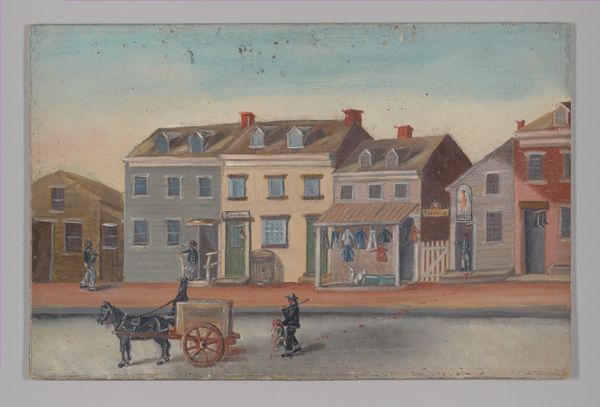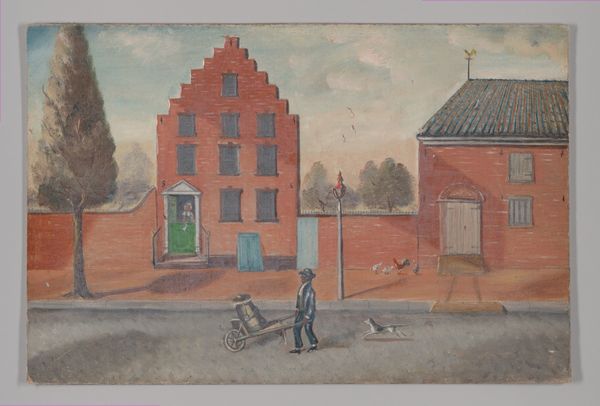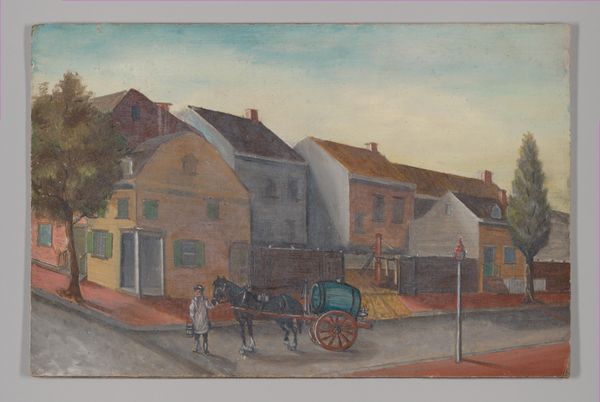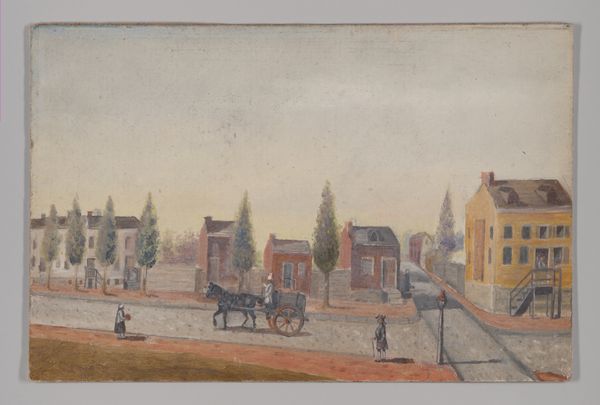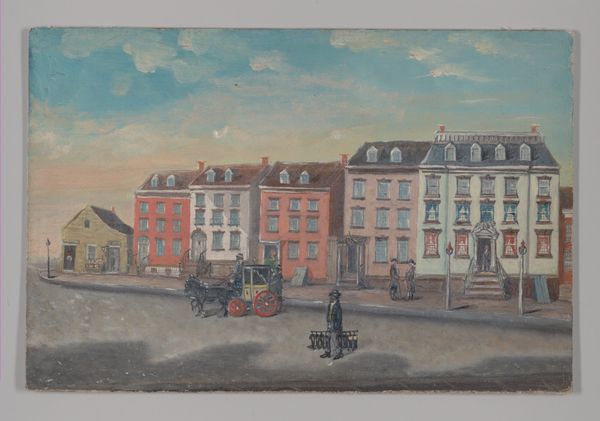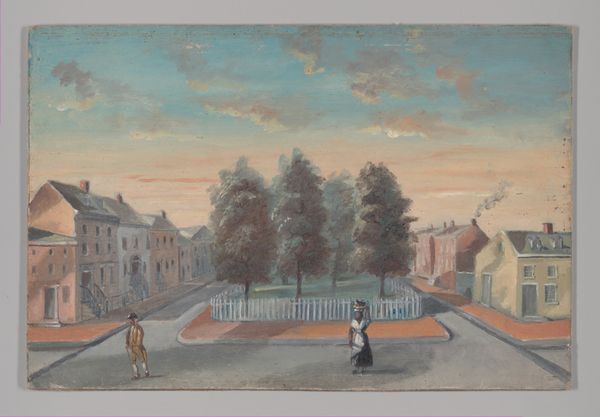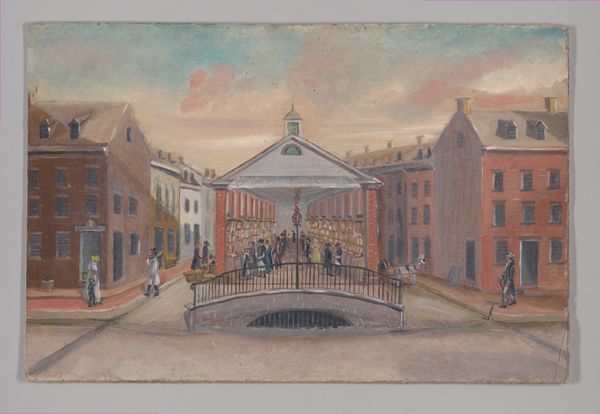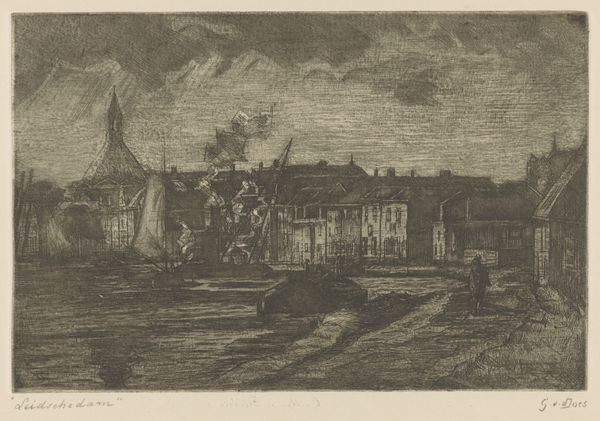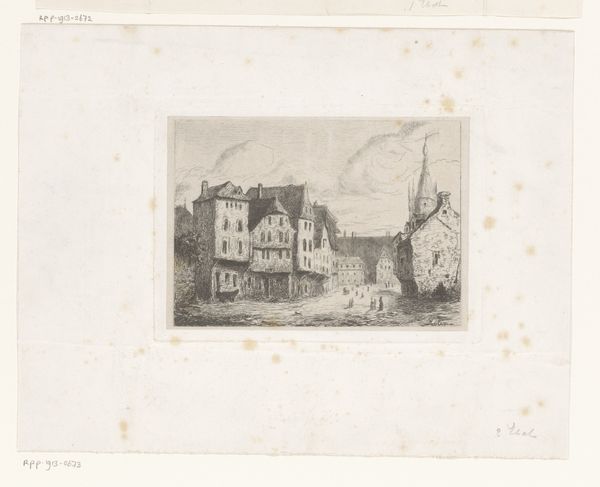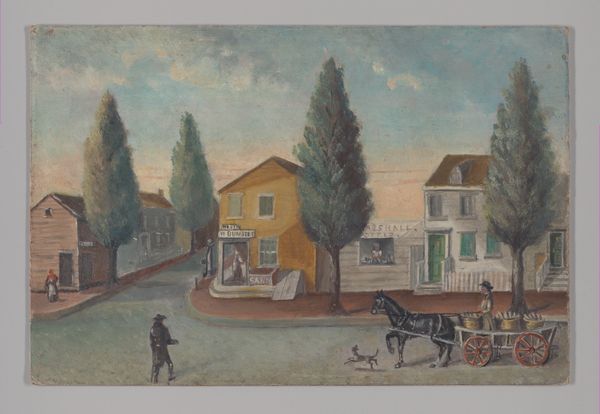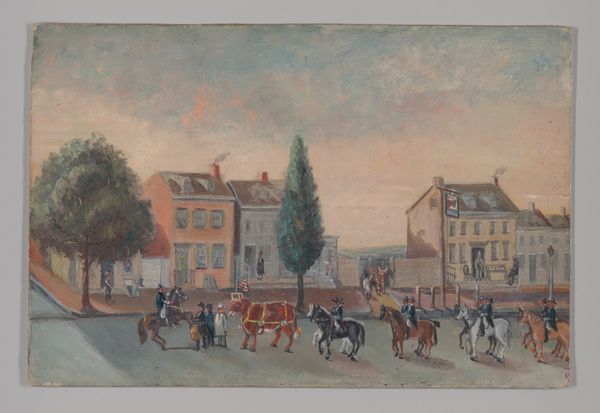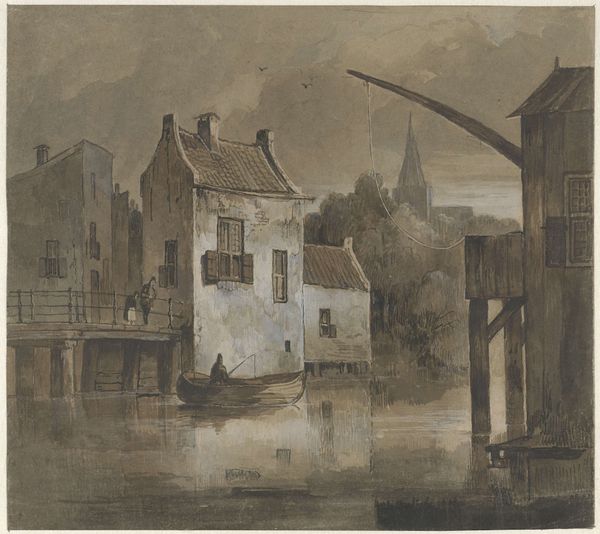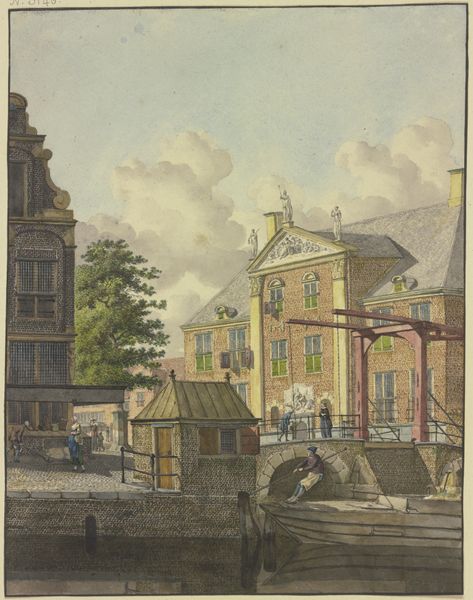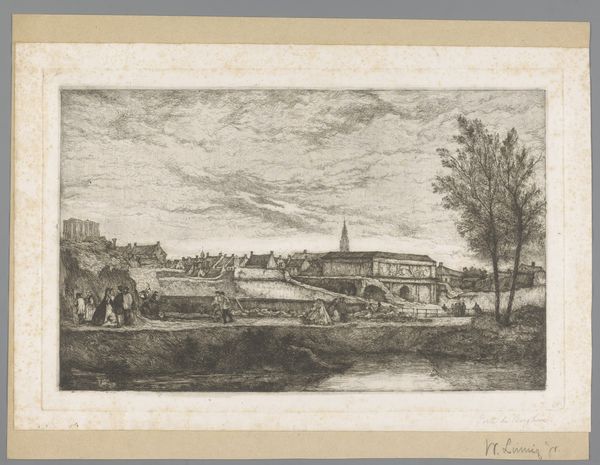
painting, oil-paint
#
night
#
painting
#
oil-paint
#
oil painting
#
men
#
cityscape
#
building
Dimensions: 6 1/16 x 9 1/8 in. (15.4 x 23.2 cm)
Copyright: Public Domain
Editor: This is "The Lamp Lighter" by William P. Chappel, painted around 1870. It's an oil painting that kind of pulls you into a dusky cityscape. There's a quietness to it, but also a hint of industry with the lamplighter and the glow of light. What really stands out to you when you look at it? Curator: Ah, the twilight hours captured! I find myself drifting into that world, that imagined cityscape. The buildings are, well, boxes with personality, right? Their stark geometry punctuated by dark rectangles where windows ought to be, or where window are. Makes me think of forgotten stories echoing behind the walls. And what's a cityscape without it's human actors, the workers who make things go? Editor: Exactly! It’s like a stage, but for everyday life. What's the artist trying to say by showing us this particular moment? Curator: Perhaps it’s about the small heroism of ordinary labor, illuminating our world. Or the transition, the fleeting moment between day and night, dreams and realities. What do *you* feel when you watch those little lightbringers marching? Do you have a sense of where this may have happened, or a recollection it awakens for you? Editor: I feel a bit melancholic. It's a lonely job, lighting lamps in the dark, a fleeting moment of warmth in a vast cityscape. I guess it reminds me a bit of Edward Hopper's works in that sense. I feel like it could be anywhere on the east coast of the U.S., somewhere like Philadelphia or even New York. Curator: You know, this painting strikes me with how different art from the olden times can feel both distant and deeply, intensely real and present all at once. Just like a whispered tale from a half-remembered dream! It gives us room to reflect on how we find meaning in these transitions. Editor: Definitely, I never really thought about it that way. It really made me stop and notice this liminal, dusk experience that these characters inhabited in 1870!
Comments
No comments
Be the first to comment and join the conversation on the ultimate creative platform.
